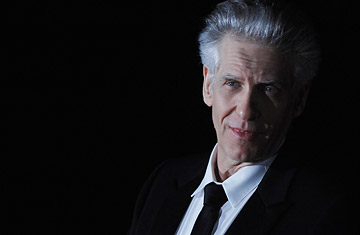
David Cronenberg, director of The Fly at the L.A. Opera
(2 of 2)
It's been more than 22 years since you directed The Fly. Do the existential themes you treated in the film sit differently with you today?
Just more intense, you know? I mean, the older you get... So many people that I know have died, I know more dead people now than living people. So it is only more intense. It really is just confirmation of what I thought as a young person: an existential approach to human life, that's my approach. Existentialism isn't as in vogue in Paris as it used to be, but I still go to Café de Flore and sit there and think of Sartre. That still informs my philosophy of life. What I was feeling when I was making The Fly has only been confirmed by life as it goes on. Which is another reason why I'm able to take it up in another form, I suppose.
You're a fan of the late philosopher Norman O. Brown. In Life Against Death, he writes, "The entry into Freud cannot avoid being a plunge into a strange world... But this strange world is the world we all of us actually live in." Could one say the same thing about your films?
Yes. I think people do live a veiled life, [a life] of illusions. Culture delivers it, politics deliver it, some art delivers it, technology delivers it — it's very easy to lose contact with life as it really is. And that's why I keep returning to the human body. It's not ghoulishness. I believe that it is the central fact of human existence. And yet it's very obvious how art and religion and many other cultural things try to take us away from the body reality — for obvious reasons. Because if you accept the body, you accept mortality, and that is a hugely difficult thing for people to accept.
You had aspirations to become a writer when you were young. Who inspired you?
My ambition was to be a great obscure writer. I found novels by people like Djuna Barnes, whose work never became as mainstream as novels can become — I was a bit of a snob, I suppose, but that was my ambition, the obscurity was important. I used to read Evergreen Review and the Paris Review, Edward Albee's first plays, [William S.] Burroughs and [Vladimir] Nabokov and so on, many of whom did accidentally become relatively mainstream, like Nabokov with Lolita, and Albee with Zoo Story.
One might say you accidentally went mainstream in 1986 with The Fly, a huge box-office success following many obscure, often controversial films. Was that an artistic turning point in your career?
Well, the rule of thumb, or really the mythology, at the time was: you do a movie that's a big success, and then you can do your art film. To me, The Fly was as much an art film as anything I was going to do — but there was Dead Ringers that I'd been trying to get made. Yet even after I did The Fly, it still was a huge struggle. Then I realized something that I had intuited already, which is: those people in Hollywood are very down to earth, they're very practical. You walk in with The Fly, they can see it. You walk in with two gynecologists who end up dead, they don't want to make that movie, they want you to make The Fly again. They're not stupid. So it's not as if you've hypnotized them with your success and they'll therefore do anything you want, that absolutely doesn't happen.
So no big change then?
It didn't really change my life at all, other than I had the experience of having the number one movie in North America for three weeks running, and agents and studio heads would suddenly talk to me who wouldn't before. But then after I made Dead Ringers in 1988 I was weird again, you know, persona non grata.
Do you think you're still perceived that way today?
My last two movies, History of Violence and Eastern Promises, were relatively successful — great critical reviews, did respectable business, were understood by Hollywood — and so my stock in Hollywood right now is pretty good. But then if I make another movie like Dead Ringers or Videodrome or Naked Lunch for the next one, my stock will go down. And I accept that. That's part of the game, I don't have any illusions about it.
How do you choose your next project?
The most important thing for me is that I make movies that I am passionate about. It's very hard to make a movie, so if you're not loving it, halfway through you're going to be suicidal. My rule of thumb is: when I'm halfway through this movie am I going to be really exhilarated and excited, or am I going to be suicidal? If it's the latter, then I absolutely don't do that project.
Well, are you going to make it through this opera in one piece?
I've had moments, but so far it's been very good.
